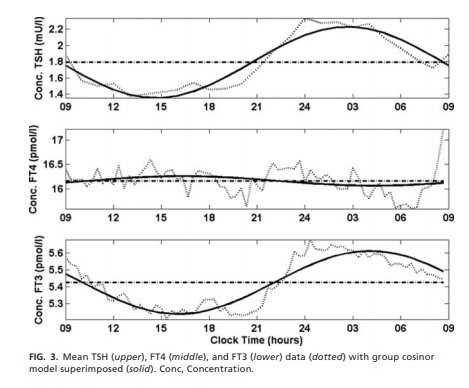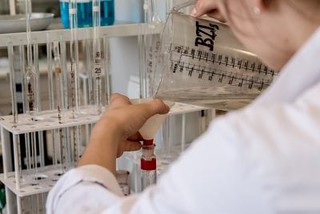
Thyroxine (T4) is one of the most powerful thyroid hormones and has been used to treat a number of different thyroid diseases for years
Thyroxine is an artificial form of thyroxine produced in the lab, and its primary function is to help regulate thyroid hormone levels in the body.
Thyroid hormones are simply two hormones made and secreted by the thyroid gland called triiodothyronine (T3) and thyroxine (T4). These are mainly tyrosine-based hormones, which are mainly responsible for regulating the metabolic rate. T₃ consists of iodine and the amino acid arginine, and T₆ consists of the amino acid glycine. When T₁ levels decrease due to thyroid problems, the body releases T3 to maintain a normal metabolic rate.
Although it is an important thyroid hormone, it is not necessary to take synthetic forms of thyroxine, as it may not have the same effects as natural thyroxine. If you do decide to use synthetic thyroxine supplements, always read the instructions carefully before starting treatment.
As the majority of the population suffers from hypothyroidism and hyperthyroidism, the need for thyroid hormone replacement therapy is increasing, as both conditions can have serious consequences. Taking synthetic thyroid hormones may not necessarily be harmful, but if taken in excess, they can increase your risk of serious complications, including heart disease, kidney damage, and cancer.
One of the main reasons for choosing thyroid hormone replacement therapy to other alternatives is that synthetic thyroid hormones are often much cheaper than natural ones. In addition, they do not cause the unwanted side effects of synthetic thyroid hormones. It usually takes three to six months for synthetic hormone replacement therapy to reach its maximum effect. This makes it ideal for those who find it difficult to maintain a normal metabolism after naturally decreasing thyroid hormone levels.
Another benefit of using synthetic hormones instead of natural ones is that they are able to provide much greater amounts of energy and help you stay focused during the day. They also help regulate your body's internal chemical balance, preventing any excess amounts of thyroid hormone or metabolic activity from getting into your system. This in turn allows you to enjoy a more consistent level of energy and a healthy digestive system.

Synthetic hormones can also be used to reduce symptoms of depression
It is not recommended for pregnant women and people taking certain medications such as lithium. Thyroxine, like other synthetic thyroid hormones, can interfere with the absorption of lithium, so pregnant women should avoid this supplement altogether.
When taking synthetic thyroxine, it's important to read the information on the package and follow all directions carefully. It is also advisable to talk with your doctor about the best dose and frequency of thyroxine supplements to help maintain good levels of hormone in your body. Also, you may want to consider discussing these issues with your doctor before starting any type of medication or treatment.
Thyroid hormone replacement is not a cure-all solution, but it can help people overcome the symptoms of hypothyroidism and hyperthyroidism and maintain proper health. Your doctor will probably recommend some type of thyroid hormone replacement for several different reasons, including the following:
Thyroxine helps regulate your blood sugar levels. The thyroid hormone has the ability to affect blood sugar by creating and maintaining the levels of the hormone thyroxine in your body.
Thyroxine has the ability to regulate your blood pressure. A reduced level of thyroxine in your body may contribute to the signs of hypothyroidism or hyperthyroidism, causing hypertension, which is common among people with low thyroid hormone levels
Many of the side effects of thyroid hormone replacement have nothing to do with your actual hormones, but are due to other health problems. Thyroxine supplements can also lower cholesterol and blood pressure, which can both reduce the symptoms of hyperthyroidism or hypothyroidism.